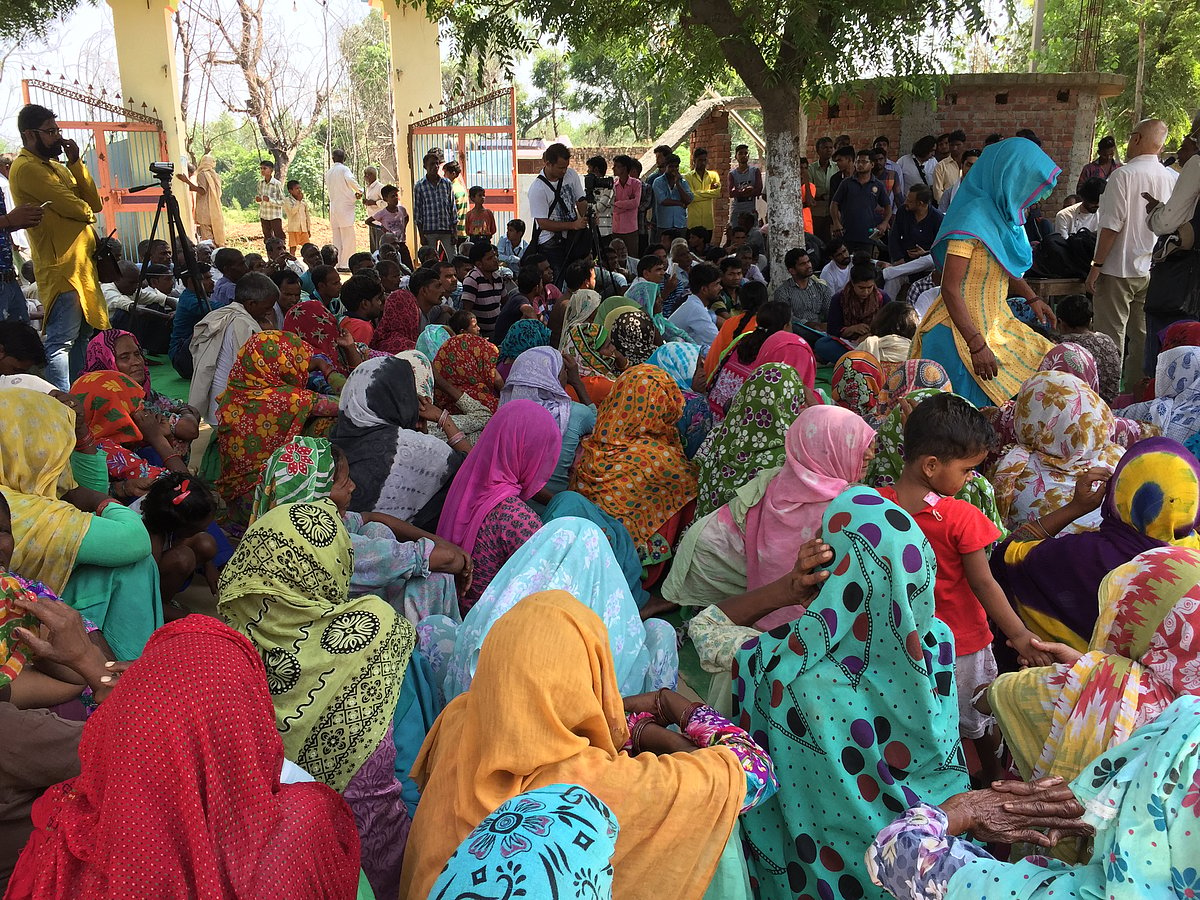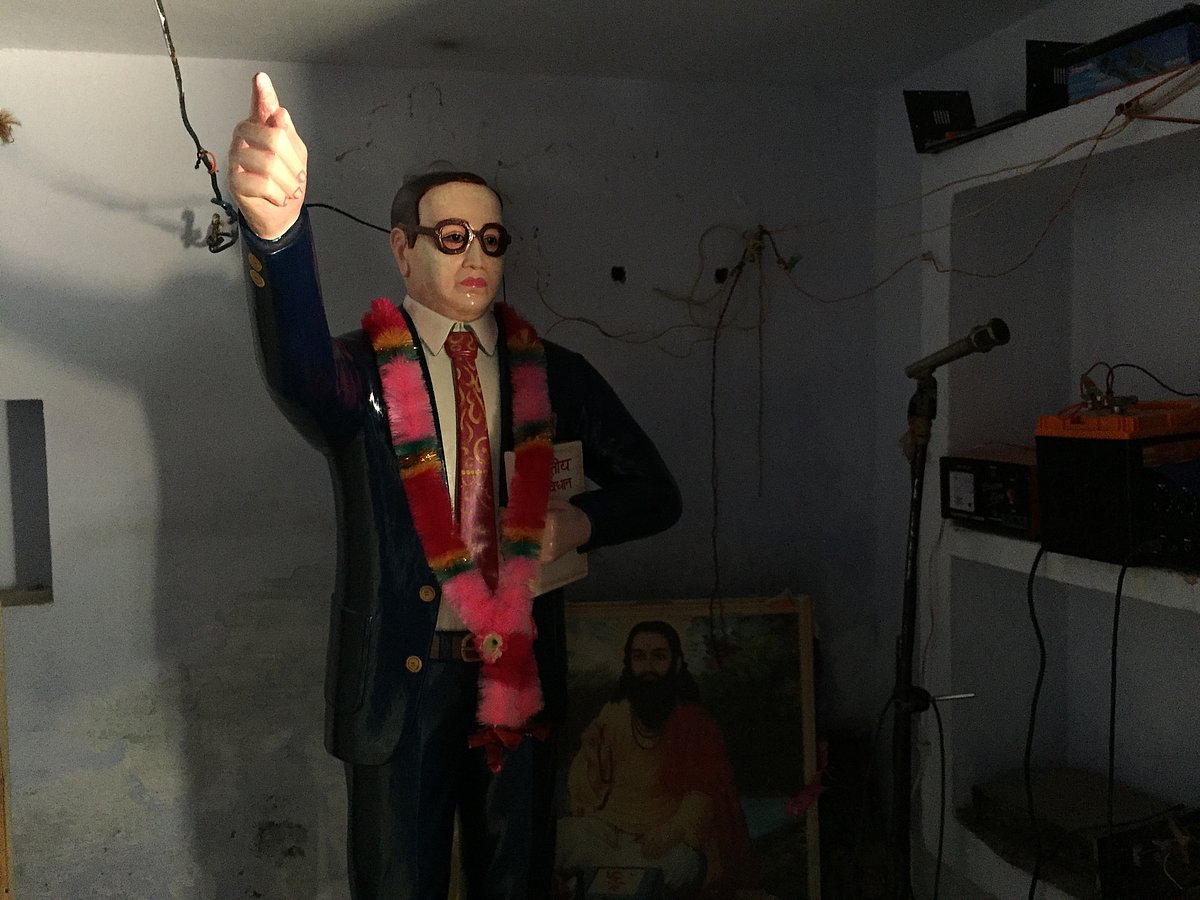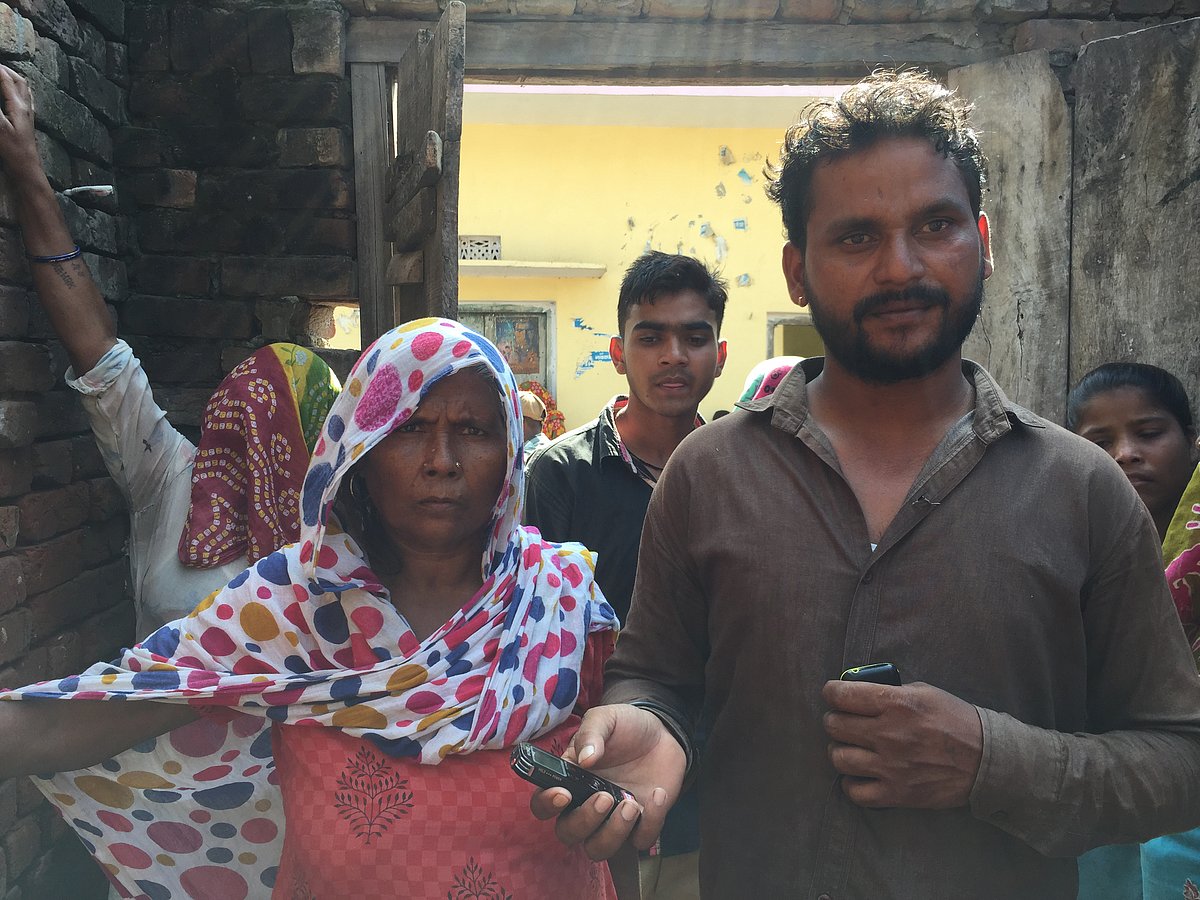‘The tilak and saffron cloth, give me shivers’: Saharanpur post Thakur-Dalit violence
The Thakur-Dalit violence that flared up in Saharanpur still haunts the villagers.
For the past two weeks, a group of 40 people including lawyers, journalists, students, professors, artists and activists have been travelling across the country to visit families who have survived lynchings.
Led and conceptualised by social activist and former IAS officer, Harsh Mander, the symbolic journey, called Karwan-e-Mohabbat, or Caravan of Love, intends to express solidarity with families whose members have been lynched and forge links between different communities.
According to Mander, lynching is ‘growing into a national epidemic’ and maintaining silence over it only reflects compliance. “I am anguished at the role of a political leadership which is creating an environment that encourages people acting out of hate and bigotry,” Mander says in a video appeal, which seeks public support for this journey.
The caravan, which completed the first leg of its journey, has travelled through Assam, Jharkhand and Karnataka. It began its second phase on September 11, 2017, from Delhi. It will travel through western Uttar Pradesh, Haryana, Rajasthan, and will finally culminate at Porbandar in Gujarat on October 2.
Newslaundry joined Karwan-e-Mohabbat on September 11 as the group travelled from Delhi to Uttar Pradesh’s Shamli district, the western-most part of state. The group reached Shamli late at night and halted there until next morning. The women slept in two rooms at the Afkar Study Centre and Library while the men slept at a madrasa.
On September 12, the members of Karwan-e-Mohabbat headed to the Saharanpur district’s Shabbirpur. The dusty roads to Saharanpur lay in the midst of endless sugarcane fields. Saharanpur had never witnessed mass communal violence until May 5, 2017, when violence between the Dalit-Thakur community flared up.
“Even today, the moment I see men with tilak and saffron colour cloth tied around their necks, I feel a chill run down my back,” said 31-year-old Sushma, who was alone at her house on May 5.
The group reached Shabbirpur at noon. The village, which is approximately 25 km from Saharanpur, is home to the largest schedule caste community in Uttar Pradesh. With little greenery, the muddy roads and burnt down houses make Shabbirpur look haunted. The Dalits in the village consider Baba Saheb Ambedkar as their leader and quote him often. The Dalit villagers had gathered at the local temple to tell us what had happened on May 5. At least one representative from each of the 160 homes was present.

The Dalit community gathered in the village temple to meet the members of Karwan-e-Mohabbat.
Manveer Singh, a Dalit labourer, narrated the incident that had led to the riots. On Ambedkar’s birthday this year, April 14, the villagers decided to erect his statue in the temple by collecting donations. “By the time we started raising a platform for the statue, the Thakurs began objecting,” Singh said.
According to Singh, the Thakur’s who despise Ambedkar and idolise Maharana Pratap Singh, had three main objections. “First, they said that the statue was too tall, then they said that Baba needn’t be placed on a platform. But their biggest problem was that they did not want Ambedkar’s fingers pointing at them. Neither did they want his statue towering above them as they walked by,” Singh said.

Ambedkar’s statue kept in the temple’s storage.
The Dalits in the village refused to accept the conditions set by the Thakurs. It was this refusal that led to the ghastly communal violence between the Thakur’s and Dalits, according to Singh.
Neetu Kumar, 32, who worked as a labourer, had been serving food to the twenty guests, who had come from surrounding villages, for a family wedding. Hearing the commotion, Kumar rushed out. “They [Thakurs] had put my house on fire, burned the bikes and cycles of my guests and hit my mother. They kept beating people and yelling at us, asking us to say Jai Rana Pratap,” said Kumar.

Burnt cycles of Kumar’s guests.
Kumar’s house, which once had an inverter, a Godrej fridge and more, is now simply a burnt down make-shift structure over looking paddy fields. The burnt cycles of guests are still lying in a corner of his house. Kumar claims that he suffered damages worth 3 to 4 lakhs. Kumar said he witnessed how the police did nothing to help the villagers. “I saw them [Thakurs] standing and telling the Thakurs that they had 4 hours to do whatever they wanted to these chamars [Dalits].”
According to the villagers, the Thakurs attacked their livestock too. “The same people who will not spare us if we injure a cow, beat up and killed our cattle that day,” Kumar added.

Neetu Kumar (32).
A few houses down the lane is Sushma’s house. Sushma said that the attack began at around 11am. Her husband, who works in Saharanpur had left for work and the kids were in school when the attackers came to the village armed with swords and other weapons. “I suddenly heard people yelling ‘Bheemkutha, Bheemkutha’ (Bheem dog, Bheem dog),” she said. Following which, Sushma immediately locked the door and ran to the terrace where she lay crouched until 4 pm.

Sushma (31).
Sushma is one of the few people in the village who managed to avoid harm. “I am so thankful that I’m one of those few people who didn’t get hit or burnt. They were throwing cylinders into homes, pouring petrol and lighting things on fire. They were beating up anyone who came in their way, be it old women or children. They also misbehaved with our women a lot.”
Four months later, the village remains tense. The proposed statue’s pedestal lies incomplete in a corner of the temple. A five-foot-tall statue of Ambedkar stands desolate in the temple’s storage room.
“Some of our children write Jai Bheem on their notebooks. Few days back, a teacher in their school tore those pages, shouted at them and asked them why they had not written Jai Maharana Pratap Singh,” Sushma said.
On August 20, 2017, the Dalit community of Saharanpur decided to shed their Hindu identity and adopt Buddhism. “When our own gods and goddesses do not count us as their own, why should we? Now we are Buddhist and we all consider Baba Saheb (Ambedkar) as our God,” Sushma added. All the statues of gods and goddesses in the village were submerged in water before the villagers assumed their new religion.
Kumar said that Saharanpur will not forget what happened, adding that ‘it isn’t over’. “If the government doesn’t ensure justice to us, we will find a way to bring justice to ourselves,” said Kumar.
The author can be contacted on Twitter at @nidhisuresh02.
